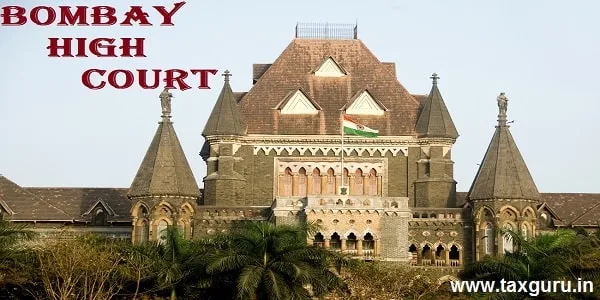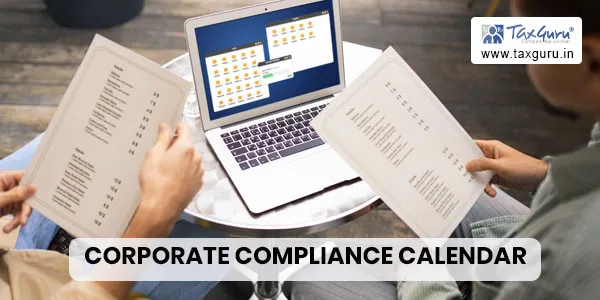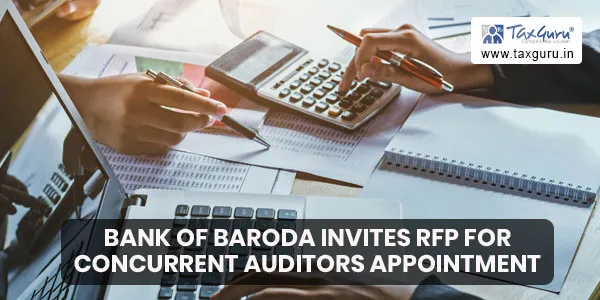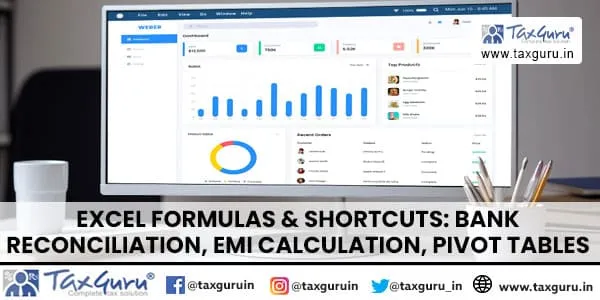Case Law Details
Pr. CIT Vs Sri H.Nagaraja (Karnataka High Court)
Admittedly, during the relevant assessment years, assessee had purchased 63 acres 20 guntas of land in Kaggalipura from various agriculturists under registered sale deeds. The said properties were converted for non-agricultural purpose; residential layout was formed, thereafter these properties were transferred to M/s. Brigade Enterprises by executing registered sale deeds. For the purpose of purchasing the lands and as also effecting sales of the sites, multiple agents were involved. The Assessing Officer examined the details regarding payments made through cheques to commission agents for purchase of properties and thereafter for effecting sale in favour of M/s. Brigade Enterprises. The Assessing Officer, therefore, did not consider it just and proper to make any additions in respect of the two assessment years as there was evidence to establish the factum of payment of commission to agents. Indeed, their names and addresses and PAN numbers had been produced. The Commissioner exercised his jurisdiction under Section 263 of the Act to hold that mere furnishing names, addresses, PAN numbers, cheque payment details to the agents for purchase of agricultural lands at Kaggalipura, and thereafter registration of sale deeds after converting and developing into residential sites would not be sufficient evidence for laying claim of expenses under Section 37 of the Act. He has proceeded to hold that assessee had to establish the actual service rendered by each of these agents in the purchase and sale of lands, and therefore, disallowed the claim of the assessee in respect of expenses towards commission.
The assessee challenged the order passed by the Revisional Authority before the Tribunal. The Tribunal has found that the assessee had furnished the details of the names, addresses, cheque payments and TDS deduction towards commission; the Assessing Officer took into consideration the fact that in real estate transactions normally norms of accepting commission for purchase and sale of land had been clearly recognized, therefore, the Assessing Officer did not commit any error in accepting the claim of commission expenses.
In our view, the Tribunal has rightly held that the Commissioner was in error in proceeding to take the view that actual service rendered by each of the individuals had to be established for accepting commission in the sale and purchase of land. A careful perusal of the findings recorded in paragraph 11 of the order passed by the Tribunal makes it clear that as regards commission expenses, the Assessing Officer after examining the assessee, had questioned him to state details regarding evidence he had supporting the claim of commission and development expenses and also as to whether TDS had been deducted and remitted by him of the said payments. In response to the same, the assessee had stated that evidence would be placed before the Assessing Officer. As a sequel of the same, the assessee submitted full details regarding payment of commission. After considering the material, the Assessing Officer chose not to make any addition on the item pertaining to commission. Therefore, the Tribunal has rightly found that the items of expenses on which the Revisional Commissioner proposed to revise the assessment having been thoroughly supported by the Assessing Officer, it was not open for the revisional authority to interfere with the same only because another view was possible. The Tribunal has supported its conclusion by referring to the judgment of the Bombay High Court in this regard in the case of CIT vs NIRAV MODI – (2017) 390 ITR 292 (BOM).
FULL TEXT OF THE HIGH COURT ORDER / JUDGMENT
1. These appeals are filed under Section 260A of the Income Tax Act, 1961 (for short, ‘the Act’) challenging the orders dated 17.03.2017 passed by the Income Tax Appellate Tribunal, Bengaluru, in ITA No.613/Bang/2014 and ITA No.614/Bang/2014, thereby allowing the appeals filed by the assessee and setting aside the order dated 28.03.2013 passed by the Commissioner for Income Tax, Karnataka (Central), Bengaluru, under Section 263 of the Act. The Commissioner had disallowed the expenses claimed by the assessee under the heads, ‘labour charges’, ‘expenses of commission’ and ‘work in progress’, with a direction to the Assessing Officer to enhance the total income in terms of the findings recorded by him. The Assessing Officer had been further directed by the Commissioner to initiate penalty proceedings under Section 271(1)(c) of the Act.
2. For better appreciation of the questions involved, it is necessary to briefly advert to the facts of the case.
3. Assessee is a partnership firm run in the name and style M/s.SLV Housing Development Corporation. The partnership firm consists of the assessee – Mr. H.Nagaraja, his wife Smt. Bhagya Nagaraj and his father Mr. Hanumappa as partners. Their business is to purchase agricultural lands, convert them for non-agricultural purpose viz., for formation of a residential layout and thereafter sell them. On 06.01.2009, a search was conducted in the premises of the assessee. Notice under Section 153A of the Act was issued for the assessment year 2008-09 and 2009-10. The assessee filed return of income for the assessment year 2008-09 declaring the total income at Rs.8,82,13,948/- and for the assessment year 2009-10 at Rs.3,98,90,396/-. By assessment order dated 28.12.2010, the Assessing Officer made addition of Rs.2,38,16,700/- in respect of assessment year 2008-09 and as regards assessment year 2009-10, an addition of Rs.4,25,72,383/- was made by him.
4. The assessee preferred two appeals to the Commissioner of Income Tax. Both the appeals were considered together. After examining the grounds raised challenging the additions made, the Commissioner confirmed the additions to the extent of only Rs.12,50,000/- for the assessment year 2008-09 and allowed the appeal in respect of the balance. As regards the assessment year 2009-10, addition of Rs.2 Crores was confirmed and rest of the amount in a sum of Rs.1,92,72,383/- was ordered to be deleted. This order was passed on 15.09.2011.
5. By exercising his powers of revision under Section 263 of the Act, the Revisional Commissioner proceeded to hold that the properties purchased by the assessee at Kaggalipura and the subsequent sale made in favour of Brigade Enterprises did not tally in respect of both the assessment orders, and therefore, directed re-consideration of the entire materials. The Revisional Commissioner further found that the development expenses consisting of labour charges, work in progress, had to be added for the assessment year 2008-09. Similarly, in respect of payment towards commission, the Revisional Commissioner found that the cheque payments and TDS made for claiming expenditure had to be verified. Thus, he ordered for making addition in respect of both the assessment years vide his order dated 20.03.2013.
6. Aggrieved by the said order passed in the revisions, the assessee preferred appeals to the Income Tax Appellate Tribunal, Bengaluru. Both the appeals were clubbed and heard together. By a common order dated 17.03.2017, the Tribunal has set aside the order passed by the Revisional Commissioner, thereby allowing the appeals of the assessee. It is this common order passed by the Tribunal is assailed by the Revenue by filing these two appeals in respect of the two assessment years by raising the following substantial question of law.
“whether, on the facts and circumstances of the case, the Tribunal is right in law in holding that the Commissioner of Income Tax is not justified in exercising power under Section 263 of the Act and deleting the entire additions even when the ingredients of Section 263 of the Act are satisfied in case of assessee and CIT had brought on record that assessing authority’s order was erroneous and prejudicial to interest of Revenue and as such the CIT rightly directed the assessing authority to make additions considering the materials on record which were not considered at time of assessment?
7. Several contentions have been urged on merits. Indeed, Counsel for the respondent has seriously contended that the issue involved in these appeals has been fully covered by the judgment of this Court in the case of DCIT Vs VARMA INDUSTRIAL LTD. – (2001) 250 ITR 472 (KAR) and order dated 17.11.2015 passed in ITA No.699/2009 in the case of SRI SALIL PUNOOSE VS ITO, in as much as, as laid down by this Court, the Revisional Commissioner could not have exercised jurisdiction under Section 263 of the Act to revise the order disallowing the development expenses, labour charges, commission paid and work in progress, as the said items had been considered both by the Assessing Officer as well as the Appellate Commissioner for both the assessment years and the assessment orders had merged with the appellate orders. In fact, based on the aforesaid judgments of this Court and some other authorities cited at the bar, respondent-assessee has filed an application seeking dismissal of the appeals as the matter was fully covered by the pronouncement of this Court. It is in this background, we have heard the matter at length.
8. Mr. Aravind, learned Counsel appearing for the Revenue has urged the following points:
(1) In so far as development expenses i.e., labour charges and work in progress, the same was not considered by the Assessing Officer as part of the development expenses. Consequently, the Appellate Commissioner did not consider the said two items. He, therefore, contends that there was no bar for the Revisional Commissioner to entertain the revision petition having regard to the provision contained under Section 263(1)(c) of the Act;
(2) In so far as expenses on purchase of land and profit from sale of property to Brigade Enterprises, as regards lands situated at Kaggalipura for the assessment years in question, the same did not tally, and therefore, the Revisional Commissioner was justified in exercising revisional jurisdiction;
(3) In respect of the expenses claimed for payment of commission to agents for purchase and sale of lands, Revenue contends that as rightly held by the Revisional Authority, the address furnished, details of payments made by way of cheques, TDS deduction of agents were not sufficient to identify the sellers and purchasers to establish the actual service rendered.
Thus, the Revenue has contended that Commissioner was right and justified in exercising revisional jurisdiction in holding that the expenses incurred under different categories deserved to be disallowed.
9. Learned Counsel appearing for the respondent- assessee has contended that as regards point no.(1) pertaining to development expenses, both the Assessing Officer as well as the Appellate Commissioner did consider the entire matter and for the assessment year 2008-09, disallowed a sum of Rs.50 lakhs and as regards the assessment year 2009-10, disallowed Rs.2 Crores, and therefore, the assessment order passed merged with the appellate order; hence, in view of the judgment of the High Court in the case of DCIT Vs VARMA INDUSTRIAL LTD. – (2001) 250 ITR 472 (KAR), the Revisional Commissioner could not have exercised jurisdiction under Section 263 of the Act to revise the said items. In so far as the second contention urged by the Revenue pertaining to expenses on purchase of land and profit from sale of property to Brigade Enterprises, the respondent has contended that there was no variation at all. It is further urged that the Revisional Commissioner could not have conducted an inquiry to take another view. According to them, such approach is not permissible in law as held by this Court in the case of CIT VS M/S. IGATE GLOBAL SOLUTIONS LTD., in ITA No.771/2009 disposed of on 28.11.2014.
10. As regards the third point urged by the Revenue in respect of expenses claimed for payment of commission to agents for purchase and sale of lands, the assessee contends that addresses of agents, details of cheque payments, TDS deductions were placed before the Assessing Officer for scrutiny and based on the said details, the Assessing Officer was satisfied and had dropped further proceedings, and therefore, the Revisional Commissioner was not right and justified in insisting for profiting details for service as the same was not permissible in law. Reliance is placed on the judgment of the Apex Court in the case of CIT VS GREENWORLDCORPORATION – (2009) 314 ITR 81 (SC), CIT VS M/S. IGATE GLOBAL SOLUTIONS LTD., in ITA No.771/2009 disposed of on 28.11.2014, and CIT VS SAP LABS PVT. LTD. in ITA No.842/2008 disposed of on 25.08.2014.
11. We have heard the learned Counsel for both parties at length.
12. Regarding first point urged by the Revenue:- It is apparent from the facts involved in the case that assessee purchased 63 acres 20 guntas of agricultural property at Kaggalipura, Bengaluru, under registered sale deeds. The said lands were got converted to non-agricultural use; the lands were developed into residential sites and thereafter sold to M/s.Brigade Enterprises Pvt. Ltd., during the assessment years 2008-09 and 2009-10. The assessee claimed expenses in a sum of Rs.20,87,92,471/- for developing the layout at Kaggalipura, Bengaluru under three different heads viz., development expenses, labour charges and work in progress.
13. The Assessing Officer scrutinized the return of income filed by the assessee and directed the assessee to furnish the details. In reply, assessee furnished names and addresses of parties to whom the amount had been paid along with PAN numbers, bills and vouchers. Considering the details furnished in support of the development expenses for the assessment year 2008-09, the Assessing Officer concluded as under which is evident from paragraph 6.5 of the order passed by the Assessing Officer.
“The assessee has offered an amount of Rs.50 lakhs for the assessment year 2008-09 in respect of the development expenses claimed by him for this assessment year and has offered an amount of Rs.2,00,00,000/- on this account for the assessment year 2009-10. The additional income admitted by the assessee in respect of unsubstantiated development expenses have been accepted after examining the details filed by the assessee and the details available on records. The amount of Rs.50 lakhs and Rs.2,00,00,000/-admitted by the assessee for the assessment year 2008-09 and 2009-10 have been treated as assessee’s undisclosed income for the relevant assessment years and brought to tax accordingly.”
14. In respect of the assessment year 2009-10, the Assessing Officer has proceeded to consider the addition regarding development expenses by a separate order which has been produced along with ITA No.605/2017. At paragraph 7.5 of the said order, the Assessing Officer has concluded as under:
“7.5. The assessee has offered an amount of Rs.50 lakhs for the assessment year 2008-09 and Rs.2,00,00,000/-for the assessment year 2009-10 in respect of the development expenses incurred by him stating that he is not in a position to produce the relevant vouchers for the expenses incurred. The additional income admitted by the assessee in respect of unsubstantiated development expenses have been accepted after examining the details filed by the assessee and the details available on records. The amounts of Rs.50 lakhs and Rs.2,00,00,000/-admitted by the assessee for the assessment years 2008-09 and 2009-10 have been treated as assessee’s undisclosed income for the relevant assessment years and brought to tax accordingly. This amount of Rs.2 crore of undisclosed income is in addition to the amount of Rs.1,92,72,383/- (as discussed in para 6 above) treated as assessee’s undisclosed profit received from the transactions with M/s Brigade Enterprises for the assessment year under consideration (Add.Rs.2,00,00,000/-).”
15. In the two appeals preferred by the assessee challenging the orders passed by the Assessing Officer for both the assessment years before the Commissioner for Income Tax, the assessee urged that there was non-consideration of addresses of parties, PAN numbers, bills and vouchers in support of development expenses. The Appellate Commissioner in his order, under the head development expenses and unexplained investment has proceeded to consider the controversy. He has upheld the conclusion of the Assessing Officer that the claim of development expenses of Rs.20,87,92,471/- had to be accepted with an addition of Rs.50 lakhs. The observations made in paragraph 3.2.3 are usefully extracted hereunder:
“The appellant had claimed development expenses amounting to Rs.20,87,92,471/- and the A.O. asked him to furnish the details and evidence for the developmental expenses. The appellant furnished the names and addresses of the parties and their PAN but no bills and vouchers were produced In view of the same, and in view of the appellant’s own admission which is quoted by the A.O. in para 6 & 6.1 wherein they had offered Rs.50,00,000/- over and above the income declared in the return of income, this addition is confirmed.”
16. In so far as the head ‘unexplained investment’, the Appellate Commissioner has held as under in paragraph 3.3.6.
“… It is fact that the appellant has offered a sum of Rs.50,00,000/- out of the developmental expenses claimed of Rs.20,87,92,471/-. The A.O. has categorically stated that no bills and vouchers were produced In view of inability of the appellant to furnish the details of actual expenditure, they have offered a sum of Rs.50,00,000/- as income since they were not able to substantiated their expenses to the extent of Rs.20,87,92,471/- In view of inflation of expenses and in view of the assessment proceedings which is over and above the returned income the benefit of this amount shall be given towards investments made during the year”.
17. In respect of assessment year 2009-10 also, the Appellate Commissioner considered the question regarding development expenses and has proceeded to confirm the addition made observing as under in paragraph 4.3.3.
“4.3.3. The appellant had claimed development expenses amounting to Rs.20,87,92,471/- and the A.O. asked him to furnish the details and evidences for the developmental expenses. The appellant furnished the names and address of the parties and their PAN but no bills and vouchers were produced. It was agreed at the time of assessment proceedings that he was not in position to produce all the relevant vouchers even though expenditure has been incurred for the development of the land. Accordingly, he agreed to offer Rs.2,00,00,000/-and the A.O. has added the same. At the time of appellant hearing, the appellant’s arguments for relief on this issue were not strong and the appellant had only stated that this amount of inflated expenses, if confirmed, shall be set off against the other addition being unexplained cash added by the A.O. In view off against the other addition being unexplained cash added by the A.O. In view of the same, and in view of the appellant’s own admission which is quoted by the A.O. in para 7.0 to 7.5 wherein they had offered Rs.2,00,00,000/- over and above the income declared in the return of income, this addition is confirmed. However, the setting off of this amount against the unexplained cash is separately considered.”
18. The question now is, whether the Commissioner of Income Tax (Appeals) exercising jurisdiction under Section 263 of the Act, could re-consider the claim of development expenses which had been considered by the Assessing Officer and concluded by the Appellate Commissioner after re-consideration. The Revisional Authority holds that labour charges, work in progress, etc., should be disallowed. In our view, when the development expenses as considered by the Assessing Officer were the subject matter of appeal and the Commissioner of Income Tax (Appeals) on the judicial side has found that for both the assessment years, the expenses incurred had to be accepted by disallowing the claim of Rs.50 lakhs for the assessment year 2008-09 and Rs.2 Crores for the assessment year 2009-10, question of Commissioner of Income Tax (Administration) exercising revisional jurisdiction under Section 263 to once again examine the very same issue so as to disallow the labour charges and work in progress does not arise, as the order of assessment made by the Assessing Officer got merged with the order of the Appellate Commissioner. The Revisional Authority cannot, by acting under Section 263 of the Act interfere and upset the order passed by the Appellate Commissioner. If the Revenue was aggrieved by the order of the Appellate Commissioner, the only remedy was to file an appeal to the Tribunal or to re-open the assessments. Counsel for the respondent is right and justified in placing reliance on the judgment of this Court in the case of DCIT Vs VARMA INDUSTRIAL LTD. – (2001) 250 ITR 472 (KAR) and order dated 17.11.2015 passed in ITA No.699/2009 in the case of SRI SALIL PUNOOSE VS ITO. The law laid down in the aforesaid two judgments applies to the facts of the present case because the Appellate Commissioner has considered the matter while concurring with the order passed by the Assessing Officer, and therefore, the order of the Assessing Officer stood merged with the order of the Appellate Commissioner. In such circumstances, the same question cannot be re-opened by the Revisional Authority exercising power under Section 263 of the Act.
19. As regards the second point urged by the Revenue, regarding expenses of purchase of land and profit from sale of properties to M/s. Brigade Enterprises, it is the case of the assessee that during the assessment years 2005-06 to 2009-10, he had purchased 63 acres 20 guntas of land at Kaggalipura village. The said properties were transferred to M/s. Brigade Enterprises under registered sale deeds; consideration for purchase of these properties was invested to an extent of 50% by the assessee and the balance 50% was invested by M/s. Canara Housing Development Corporation. The Assessing Officer has accepted the payments made for purchase of lands from agriculturists and the sale of lands to M/s. Brigade Enterprises as having been duly accounted for during the various assessment years. When the Assessing Officer scrutinized the returns for the assessment years 2008-09 and 2009-10, he considered the purchase of lands from villagers and thereafter sale of the same to M/s. Brigade Enterprises. He has dealt with the same in paragraphs 5.2 to 5.6 of the assessment order and has proceeded to arrive at a conclusion that for assessment year 2008-09, there was unexplained income of Rs.1,25,66,700/- and for the assessment year 2009-1-0, there was unexplained income in a sum of Rs.1,92,72,383/-. He has thus proceeded to treat these to items as undisclosed profit for the respective assessment years.
20. The assessee challenged this order by filing appeal before the Appellate Commissioner. The Appellate Authority considered both the appeals and in his order dated 28.03.2013, has held after examining the legality and correctness of the order passed by the Assessing Officer that addition made by the Assessing Officer regarding unexplained income was not justified in view of the evidence furnished by the assessee. Hence, the Appellate Commissioner ordered for deletion of the additions made by the Assessing Officer, as a result the conclusions regarding purchase price paid for acquiring the lands and the sale proceeds received by selling the lands stood concluded as per the order of the Appellate Commissioner. The order passed by the Assessing Officer got merged with that of the Appellate Commissioner for both the assessment years. Therefore, there was no scope for the Revisional Commissioner to exercise jurisdiction under Section 263 to proceed to re-examine the purchase made by the assessee in respect of the lands in question. The Revisional Commissioner had no justification to add cost price in a sum of Rs.2,71,13,658/- stating that it pertained to sales made for the subsequent year. He also erred in directing the Assessing Officer to re-examine the purchase price of the lands.
21. As rightly contended by the Counsel for the respondent, the conclusion reached by the Commissioner while exercising revisional jurisdiction tantamounts to directly interfering with the conclusions reached by the Appellate Commissioner. Such power of the revisional authority cannot be conceded to enable him to interfere with the orders passed by the Appellate Commissioner in view of the doctrine of merger. Hence, it has to be held that the Revisional Commissioner acted without jurisdiction in passing the said order.
22. As regards commission expenses:- Similar is the factual matrix involved in respect of commission expenses claimed by the assessee for the two assessment years. Admittedly, during the relevant assessment years, assessee had purchased 63 acres 20 guntas of land in Kaggalipura from various agriculturists under registered sale deeds. The said properties were converted for non-agricultural purpose; residential layout was formed, thereafter these properties were transferred to M/s. Brigade Enterprises by executing registered sale deeds. For the purpose of purchasing the lands and as also effecting sales of the sites, multiple agents were involved. The Assessing Officer examined the details regarding payments made through cheques to commission agents for purchase of properties and thereafter for effecting sale in favour of M/s. Brigade Enterprises. The Assessing Officer, therefore, did not consider it just and proper to make any additions in respect of the two assessment years as there was evidence to establish the factum of payment of commission to agents. Indeed, their names and addresses and PAN numbers had been produced. The Commissioner exercised his jurisdiction under Section 263 of the Act to hold that mere furnishing names, addresses, PAN numbers, cheque payment details to the agents for purchase of agricultural lands at Kaggalipura, and thereafter registration of sale deeds after converting and developing into residential sites would not be sufficient evidence for laying claim of expenses under Section 37 of the Act. He has proceeded to hold that assessee had to establish the actual service rendered by each of these agents in the purchase and sale of lands, and therefore, disallowed the claim of the assessee in respect of expenses towards commission.
23. The assessee challenged the order passed by the Revisional Authority before the Tribunal. The Tribunal has found that the assessee had furnished details of the names, addresses, cheque payment details and TDS deduction towards commission. The assessee challenged the order passed by the Revisional Authority before the Tribunal. The Tribunal has found that the assessee had furnished the details of the names, addresses, cheque payments and TDS deduction towards commission; the Assessing Officer took into consideration the fact that in real estate transactions normally norms of accepting commission for purchase and sale of land had been clearly recognized, therefore, the Assessing Officer did not commit any error in accepting the claim of commission expenses.
24. We have given our careful consideration to the findings given by the Appellate Tribunal. In our view, the Tribunal has rightly held that the Commissioner was in error in proceeding to take the view that actual service rendered by each of the individuals had to be established for accepting commission in the sale and purchase of land. A careful perusal of the findings recorded in paragraph 11 of the order passed by the Tribunal makes it clear that as regards commission expenses, the Assessing Officer after examining the assessee, had questioned him to state details regarding evidence he had supporting the claim of commission and development expenses and also as to whether TDS had been deducted and remitted by him of the said payments. In response to the same, the assessee had stated that evidence would be placed before the Assessing Officer. As a sequel of the same, the assessee submitted full details regarding payment of commission. After considering the material, the Assessing Officer chose not to make any addition on the item pertaining to commission. Therefore, the Tribunal has rightly found that the items of expenses on which the Revisional Commissioner proposed to revise the assessment having been thoroughly supported by the Assessing Officer, it was not open for the revisional authority to interfere with the same only because another view was possible. The Tribunal has supported its conclusion by referring to the judgment of the Bombay High Court in this regard in the case of CIT vs NIRAV MODI – (2017) 390 ITR 292 (BOM).
25. As we do not find any error in the approach adopted by the Tribunal, we find that there is no scope for interference in the matter. Therefore, the substantial question of law raised by the Revenue is answered in the negative. We, therefore, hold that in the facts and circumstances of the case, the Tribunal was right in holding that the Commissioner of Income Tax was not justified in exercising the revisional powers under Section 263 of the Act to upset the order passed by the Assessing
Officer which had stood merged with the order passed by the Commissioner of Income Tax (Appeals).
26. For the reasons stated above, the appeals filed by the Revenue are dismissed. In the facts and circumstances of the case, parties shall bear their respective costs.




















